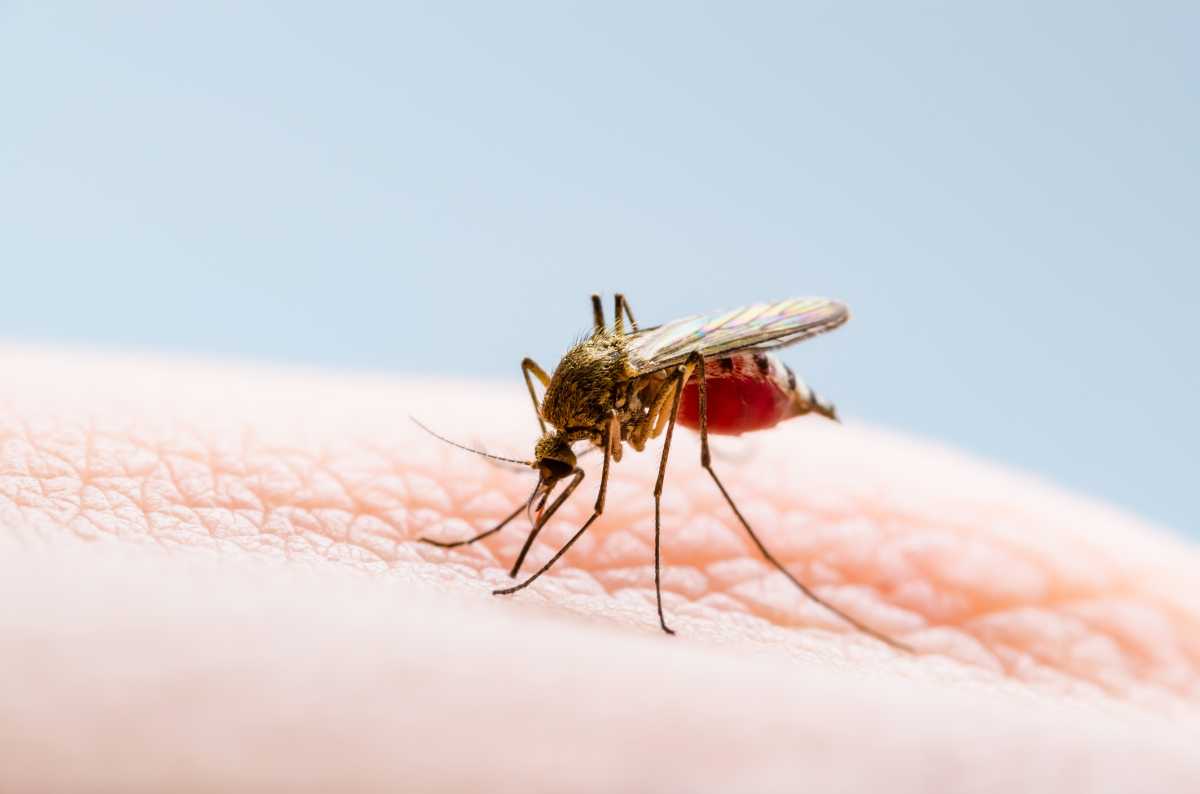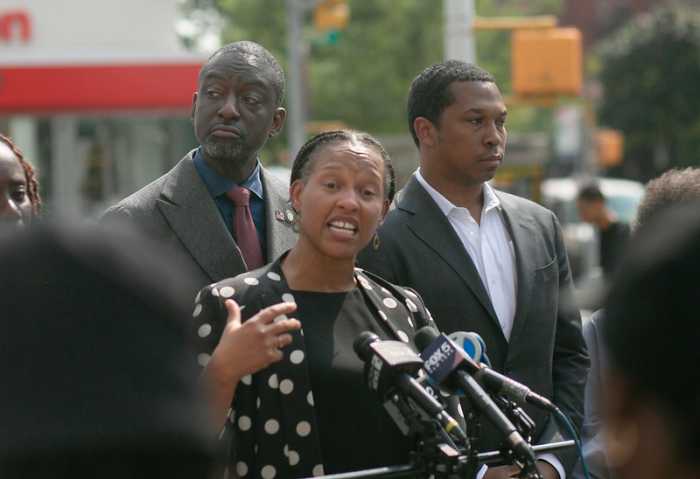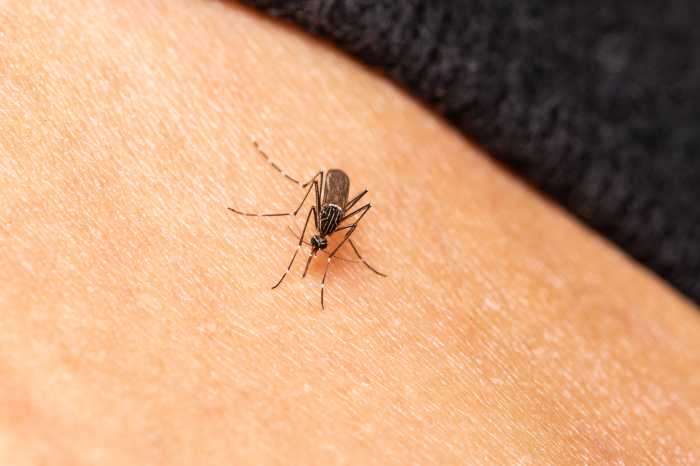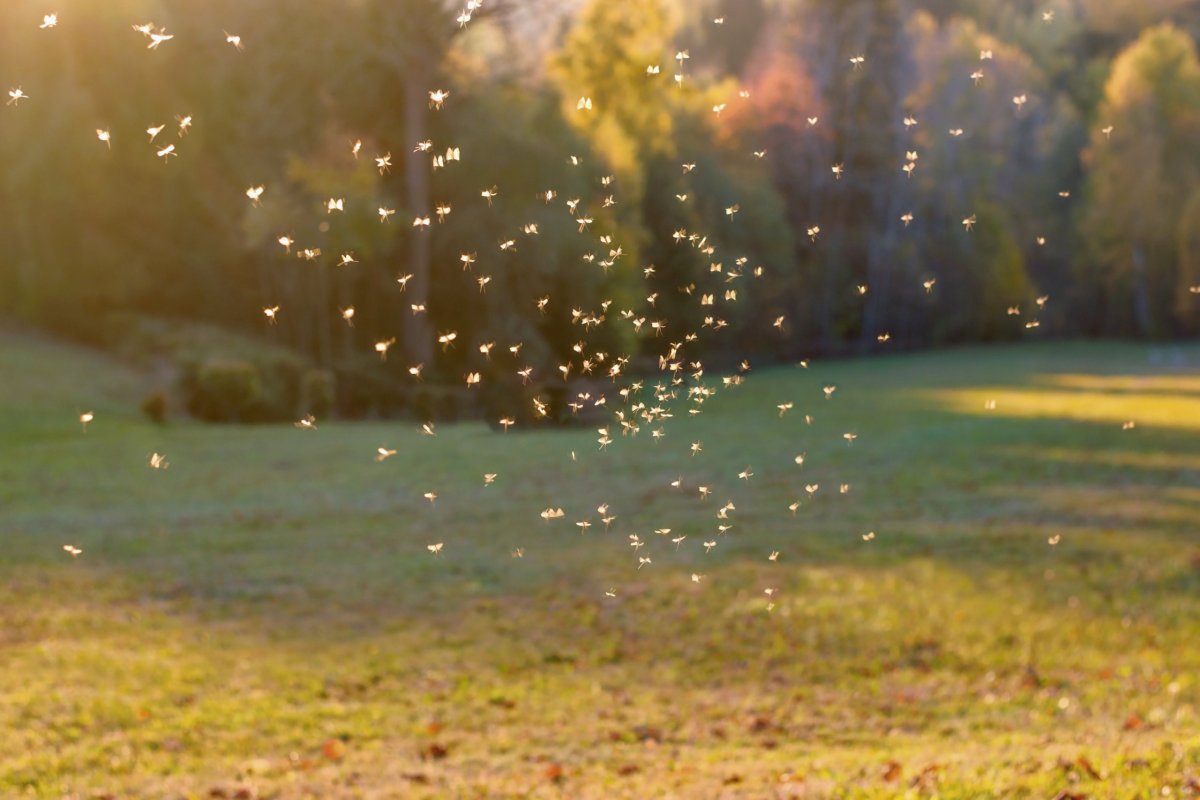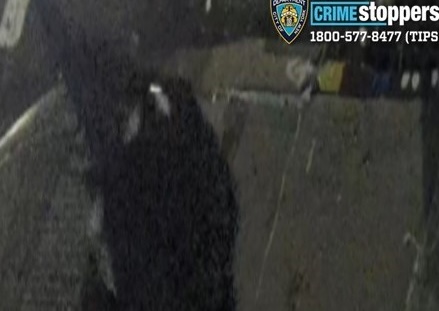A Queens resident has been hospitalized with encephalitis, a brain infection, after contracting West Nile virus through a mosquito bite, city health officials said Friday while announcing the first human cases of the virus for the 2025 season.
Acting Health Commissioner Dr. Michelle Morse said the individual is one of two confirmed cases by the Department of Health. The other person is also a Queens resident and was briefly hospitalized.
Additionally, Dr. Morse said that the virus was detected in blood donations from two individuals, one a resident of Brooklyn, the other of Staten Island, and that reports of two more people from Brooklyn with possible West Nile virus disease are under investigation.
West Nile virus, which spreads through mosquitoes, can cause severe illness or death, though most infections do not lead to serious complications, according to city health officials. People over 55 and those with weakened immune systems are at the highest risk for severe illness.
Like the Queens resident currently hospitalized, in rare cases, about one in 150, the virus can cause West Nile neuroinvasive disease, a serious and potentially fatal infection of the brain and spinal cord. Symptoms can include changes in mental status and muscle weakness, often requiring hospitalization. This can result in encephalitis, meningitis, or acute flaccid myelitis, a polio-like condition that causes muscle weakness or paralysis.
Most people infected with the virus do not show symptoms, but common signs include fever, headache, muscle aches, rash, and extreme fatigue.
The city’s Health Department routinely traps and tests mosquitoes. Up to 50 mosquitoes are grouped together and tested as a single “pool.” This season, there have been 988 positive mosquito pools across the five boroughs, fewer than at the same time last year, according to officials. Mosquito activity typically peaks in August and September.
Since May, the department has conducted 10 adulticiding spray operations, three aerial larviciding operations, two rounds of catch basin larviciding, and 1,104 ground-based larviciding treatments so far this season.
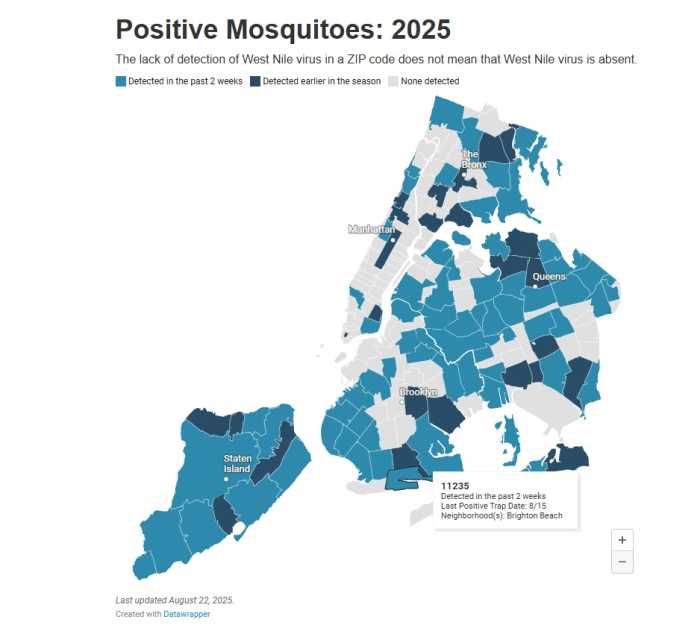
Dr. Morse urged New Yorkers to take precautions, such as removing standing water and using EPA-registered insect repellent.
“West Nile virus can cause serious illness, especially among people over 55 and with weakened immune systems,” she said. “The Health Department’s vector surveillance and control program helps identify and reduce our risk, but there are simple things you can do to protect yourself and your loved ones. Use an EPA-registered repellent and wear long sleeve shirts and pants — especially at dawn and dusk when mosquitoes that transmit the virus are active. Eliminate standing water so mosquitoes can’t breed, and make sure you have intact screens on your doors and windows. The virus has been detected in mosquitoes across the city — visit the online map.”
Standing water in public or private spaces can be reported to 311. Residents are encouraged to report mosquito problems and breeding areas.
West Nile virus was first detected in New York more than 25 years ago. From 2012 to 2021, an average of 16 people per year were diagnosed with West Nile neuroinvasive disease; from 2022 to 2024, the annual average increased to 31 cases. Health officials aid that most infected New Yorkers report not using repellent or taking other precautions.
The city is home to more than 40 mosquito species, but West Nile virus is primarily transmitted by several Culex species, including Culex pipiens, Culex restuans, and Culex salinarius.
The map of impacted neighborhoods where mosquitos have tested positive can be found here. Health officials note that the lack of detection of West Nile virus in a ZIP code does not mean that virus is absent.



